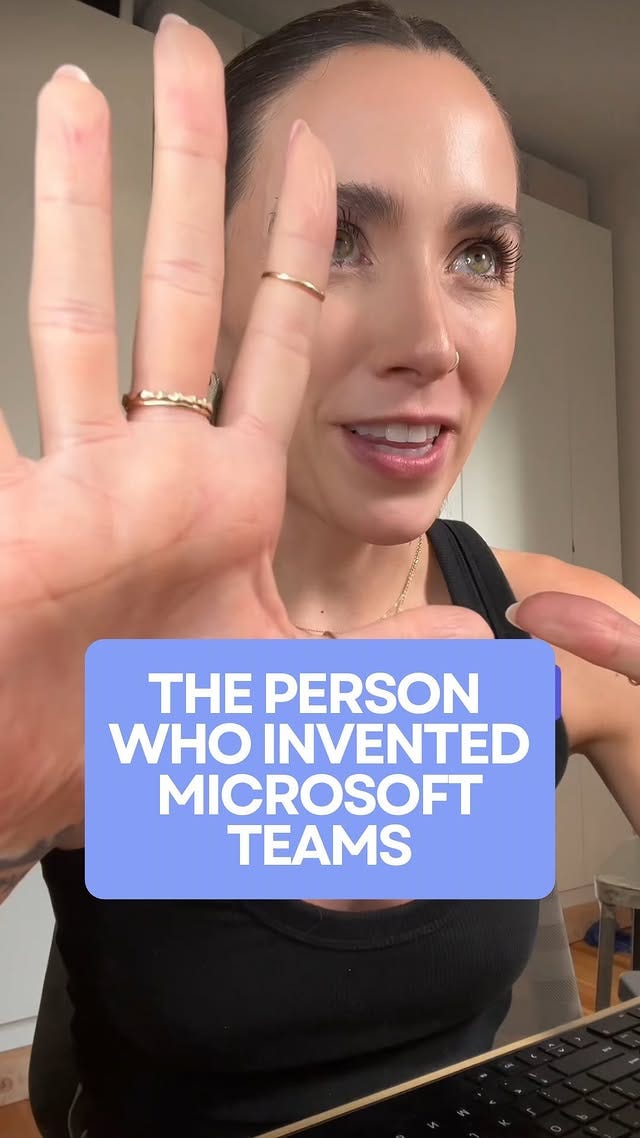As I’ve mentioned many times before, my current corporate workplace is (thankfully!) pretty darn humane: We don’t work excessive hours. My leadership gives me a ton of autonomy. We have a culture of respect and trust. I’ve never sensed that anyone is ever hovering over my work, logging my time, or really bats an eye when I step away from my computer for lunch, for a short appointment, or even for the often-recommended short stretch break and walk (though I’m far worse than I’d like to be at taking them). Occasionally someone will ping me unexpectedly to ask a quick question or see if I can hop on a call to chat about something, but there’s never a real sense of urgency. My reply could be slower to come, and no one would really care. We mark ourselves Out of Office when we’re out of office, and otherwise just trust that replies will come when the recipient gets a moment to respond. In short, while we are productive and remain available to collaborate for about 8 hours a day, it’s still pretty chill.
And yet, my friends… and yet. I can’t shake my anxiety about my Microsoft Teams status light turning yellow / away during typical working hours. (A similar status light exists in Slack and most other workplace communications software.)
I’m actually really embarrassed to admit this! But, it turns out, this is a common anxiety. During the holidays, I saw a meme that read, “Happy Holidays to everyone but the person who created the status light on Microsoft Teams.” The following video also captures this sentiment along with Teams’s other…. quirks:
In response to this anxiety, enough people have invented ways to keep their status lights green or red that many workplaces, including my own, have had to expressly forbid things like mouse jigglers —and for good reason, as they keep a workstation vulnerable to an unapproved user using the computer. It’s also, of course, dishonest —implying you’re active on your work computer or during work hours when, at the moment, you are not.
I want to be clear that I have no interest in these cheats or “hacks.” My interest is in letting go of my anxiety, especially because I’ve seen absolutely no indication that it’s warranted at my workplace!
To do so, of course, I have to get to the bottom of why I have this relationship to these little colorful dots —why I self-monitor. Here are the theories I’ve explored:
I just really miss teaching Foucault: I mean, honestly, sometimes, but no.
My eldest-daughter -inflected desire to always be achieving, rule-adherent and people-pleasing: Probably. But I’m also trying to interrupt the narrative that “I’m a hard, good worker who is also always available to help or talk to anyone who needs it” and especially the behaviors that follow it. (Do we even need to ask why? I didn’t think so.)
Prior workplace adverse socialization: Have I had an overbearing and micromanaging boss who’d ask for “a quick chat” and only release you from a barrage of increasingly insulting questions 3.5 hours later? Yes. But was that years ago by now? Yes. And is my current boss, or her boss, or her boss, or anyone on my team or anyone I regularly interact with at my company like that? No! I know trauma works its way deep into our nervous systems, but I don’t feel this anxiety when I’m at work or using our digital platforms generally. So why would I feel it when I do any of the many (permitted, if not encouraged!) activities that might let my light turn yellow for a bit?
The fact that no such platforms really existed for me in academia: Sure, we had a Google campus but I never signed in to chat, nor did anyone expect to reach me that way. I had established office hours, and folks could set up meetings with me outside of them, and I was responsive to emails. I also worked most waking hours every weekday and a significant chunk of most weekends, so there was no need to worry about whether I appeared to be working. If anything, I needed to disappear so I could actually get work done. So being attentive to this at all was new for me when I left academia. But I’ve also been out for years. So what gives?
At the end of the day, it’s probably a combo of most of these. But it also reflects a larger dynamic where, 5 years now into the pandemic era that shifted so many workers toward remote and hybrid work, we’re all grappling with autonomy and trust. I’ve read that workplaces that focus on outcomes over activity and operate with trust tend to yield more satisfied and productive workers. That certainly feels true to me, both broadly and personally. Even so, I can’t let go of the anxiety that comes with my workstation status being visible to others.
How do others deal with this —again, personally, not in terms of “hacks” or cheats? What might I have missed in getting to the bottom of my own issues with it and their root causes? What does this look like for you? I’d really love to talk about all of this in comments —so please do share your thoughts!
See you again in a couple weeks for another AMA! —Meghan





